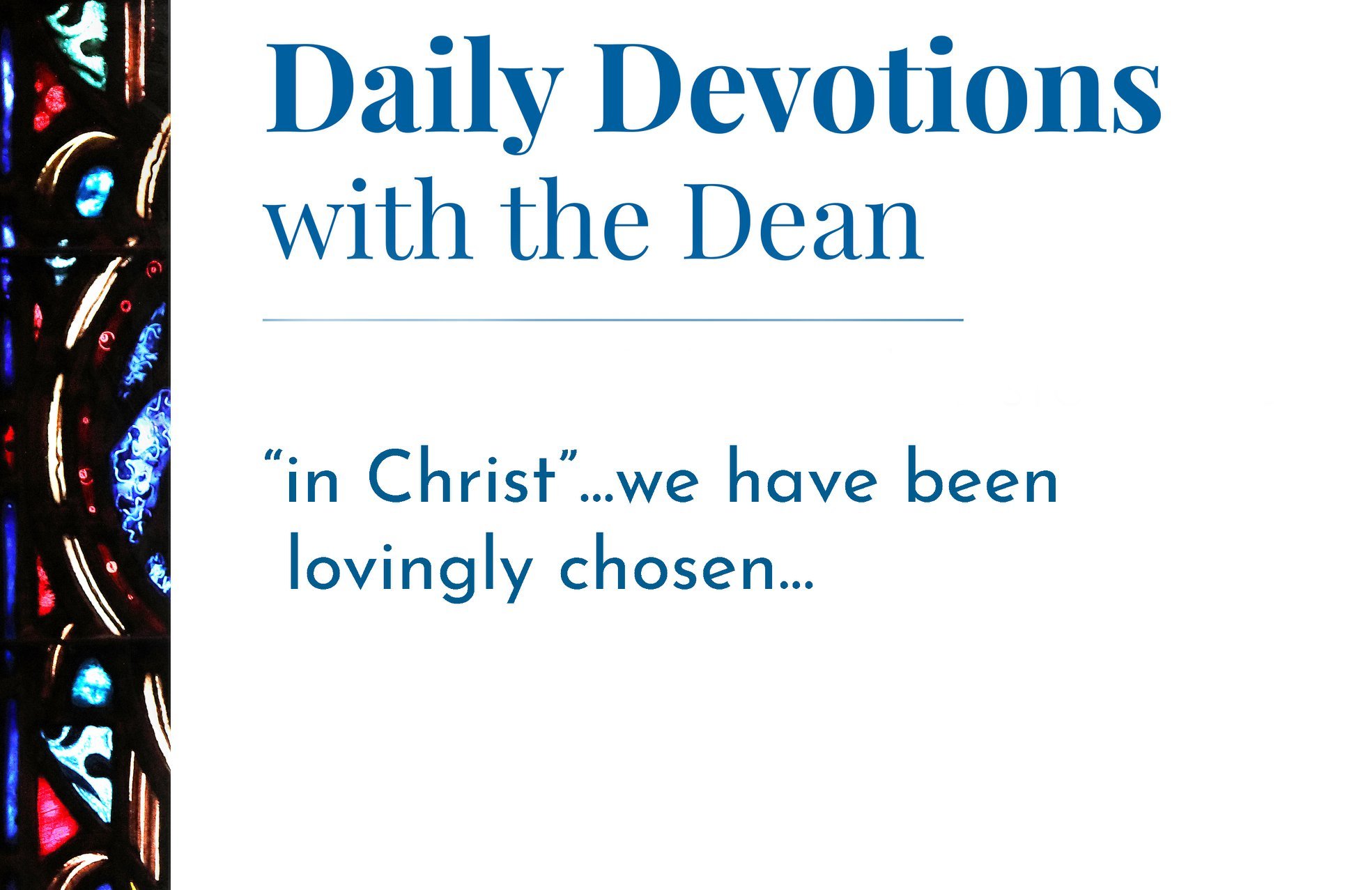Friday • 11/29/2024 •
Proper 29 Year 2
This morning’s Scriptures are: Psalm 140; Psalm 142; Zechariah 14:1-11; Romans 15:7-13; Luke 19:28-40
This morning’s Canticles are: following the OT reading, Canticle 10 (“The Second Song of Isaiah,” Isaiah 55:6-11; BCP, p. 86); following the Epistle reading, Canticle 18 (“A Song to the Lamb,” Revelation 4:11; 5:9-10, 13, BCP, p. 93)
Welcome to Daily Office Devotions, where every Monday through Friday we bring to our lives that day’s Scripture readings, as given in the Book of Common Prayer. I’m Reggie Kidd, and I’m grateful to be with you this Friday of Proper 29 in Year 2 of the Daily Office Lectionary.
Today’s Daily Devotion closes the Christian year. Advent begins this Sunday, marking the beginning of the New Year in the Christian calendar. Our readings invite reflection of God’s Kingdom—its inauguration, its continuation, and its consummation (with thanks to my friend Richard Pratt for the terminology).
Luke: Inauguration of the Kingdom. Luke’s account of Jesus’s triumphal entry into Jerusalem plays a part in the inauguration of Jesus as King. Just as Zechariah 9 had prophesied, he comes humbly, mounted on a donkey. As Jesus approaches Jerusalem from the Mount of Olives he is met by a carpet of cloaks and by greetings of “Blessed is the king!” and “Peace in heaven!” and “Glory in the highest heaven!” Nonetheless, this phase of Jesus’s kingship will involve a crown of thorns, a mocking purple robe, and a reed for a scepter. That is why, in the verses immediately following today’s, Jesus weeps over Jerusalem: “If you, even you, had only recognized on this day the things that make for peace!” (Luke 19:41). He knows that rejection and suffering await him, and that destruction lies ahead for Jerusalem, “because you did not recognize the time of your visitation from God” (Luke 19:44).
Nonetheless, Jesus’s coming is indeed the time of God’s visitation in peace—his rejection, his sufferings, and his crucifixion will result in the inauguration of the kingdom of God. Beautifully, if ironically, the greetings from the crowd at Jesus’s triumphal entry recall the angels’ song at the nativity: “Glory to God in the highest heaven, and on earth peace among those whom he favors!” (Luke 2:14). Jesus’s redeeming death, his victorious resurrection, and his crowning ascension will bring in an era in which God’s peace will be announced on the earth and God will receive glory through the growth of the church.
Romans: Continuation of the Kingdom. Like perhaps nobody else, the apostle Paul understands the time in which we live. It is a time when the Kingdom, having been established by Jesus’s earthly ministry, continues now through the proclamation of the good news of the forgiveness of sins and of God’s welcome of Jew and Gentile alike. This “between time”—between the Kingdom’s inauguration at Jesus’s first coming and the Kingdom’s consummation at his second—is a time characterized by hope, joy, peace, and faith: “May the God of hope fill you with all joy and peace in believing, so that you may abound in hope by the power of the Holy Spirit” (Romans 15:13).
Zechariah: Consummation of the Kingdom. Zechariah foresees the day when “hope” and “faith” are no longer necessary, and when “joy” and “peace” abound for God’s faithful—a day when Jesus returns in all his might, and when God’s Kingdom is finally consummated.
Zechariah foresees the Mount of Olives, once the staging area of Jesus’s humble entry into Jerusalem, as the place where the Lord descends to fight for his embattled people, when “his feet shall stand on the Mount of Olives … and [it] shall be split in two from east to west by a very wide valley” (Zechariah 14:4).
What Zechariah pictures with vivid imagery is a reality he sees from quite some distance (and we still stand at some unknown distance from it as well!). What he sees is the descent of the returning conquering King Jesus, who brings “all the holy ones” (Zechariah 14:5—that is, the dead in Christ and his angelic army) to deliver a final death blow to sin, to evil, to Satan, and to death itself (see Revelation 19 and 20).
And what Zechariah predicts—“”Jerusalem shall remain aloft on its site … Jerusalem shall abide in security”—will prove to be “the holy city, the new Jerusalem, coming down out of heaven from God,” descending to be the place where God takes up his abode with his people on “a new earth” under “a new heaven” (Revelation 21 and 22).
What Zechariah sees as “living waters” flowing out from Jerusalem, the Book of Revelation will see as the new Jerusalem’s “river of life” which will nourish trees that produce fruit and leaves “for the healing of the nations” (Zechariah 14:8; Revelation 22:1-2).
Finally, what Zechariah sees most accurately is that the consummation of the Kingdom proves once and for all the singularity and sovereignty of Israel’s God: “And the Lord will become king over all the earth; on that day the Lord will be one and his name one” (Zechariah 14:9).
No matter what turbulence or uncertainty we may be facing right now, Jesus is King! Jesus became King when first he came; he is King for us right now; and he will return in power and great glory as the world’s true King, on the day appointed by his Father and ours.
Be blessed this—and every—day!
Reggie Kidd+























